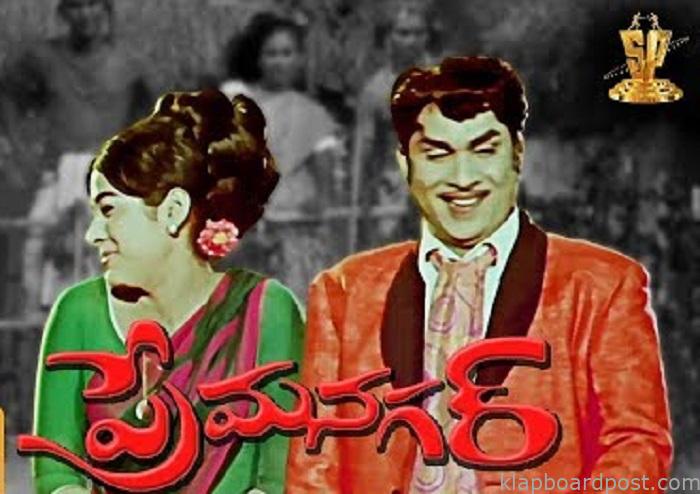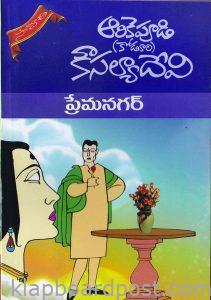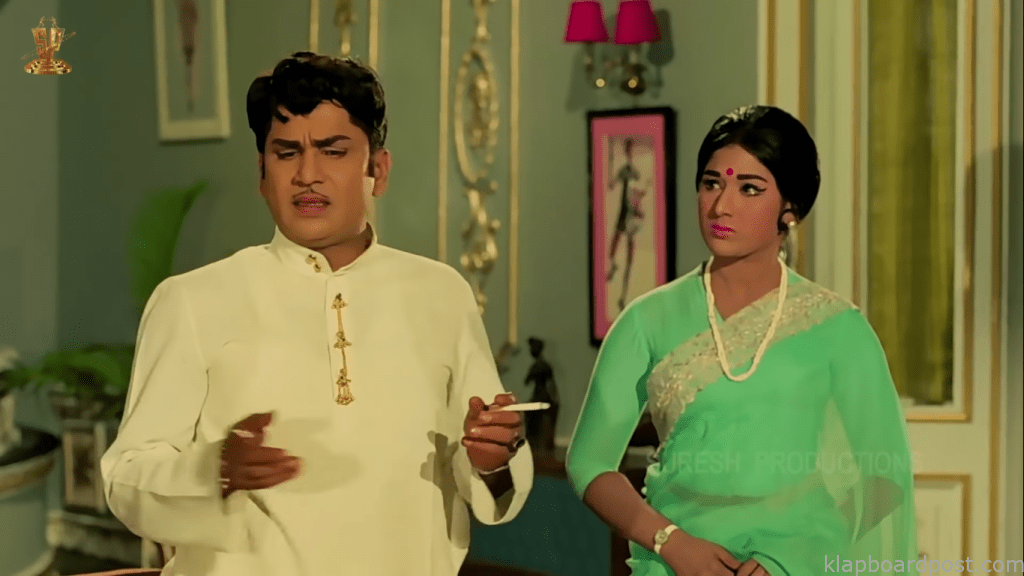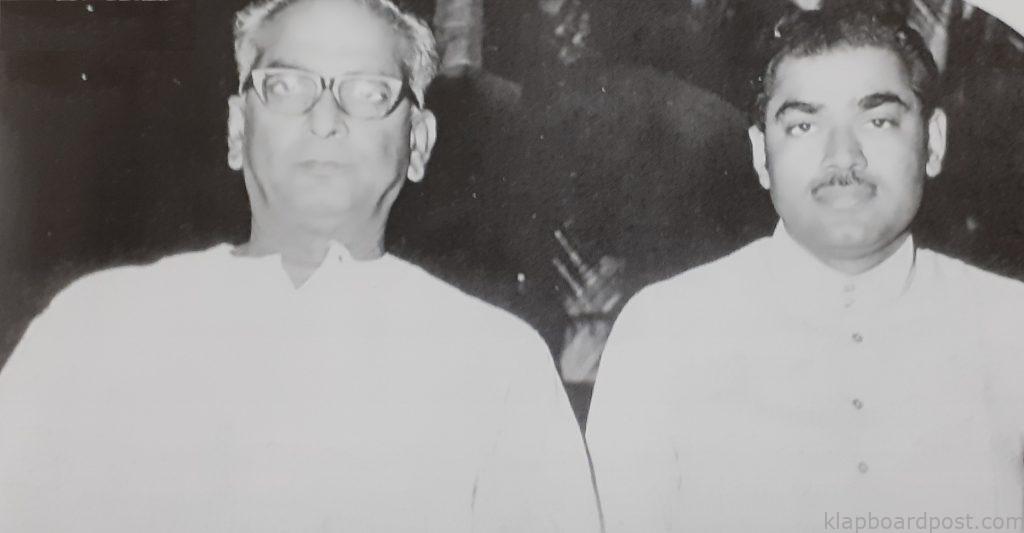Srivathsan Nadadhur
Every film has a distinctive journey that’s worth reminiscing regardless of how it pans out at the ticket window. The days leading to the launch of Prema Nagar, the ANR, Vanisri blockbuster that rewrote box office records in 1971 and celebrates its 49th anniversary today, were quite shaky. The producer Ramanaidu’s earlier film Drohi, the K Bapaiah-directorial that released on December 31, 1970, opened on a disastrous note. Only two of the producer’s eight films, produced under Suresh Productions, had rung in profits till then and it is well within our limits to label this as a make-or-break phase for him.

However, given the film fanatic that Ramanaidu was, he wasn’t the one to give up on his passion for filmmaking easily. Suresh Productions was reportedly running on a Rs 12 lakh deficit already and he still didn’t mind a last-shot gamble that could revive the fortunes of his production house. It’s believed that Ramanaidu had discussed with his wife Rajeswari about returning to agriculture and that his children would be sent to hostels in case this venture didn’t prove fruitful. He referred to his 90-acre land at Kelambakkam, located in the outskirts of Madras as a backup if the film didn’t work. There were high stakes running on Prema Nagar.
The journey towards the filming

Prema Nagar, to everyone’s knowledge, was based on a novel written by Koduri (Arekapudi) Kousalya Devi and the success of novel-inspired-films prompted producers to keep a watch on stories published across weeklies and magazines. Published in a vernacular weekly, Andhra Prabha, as a story series, Prema Nagar had captured the imagination of the average reader. However, Ramanaidu wasn’t the first person to eye a film based on this story.
Producer Sridhar Reddy had acquired the adaptation rights of Prema Nagar for Rs 60,000 (a huge sum back then) and even readied a screenplay written by Palagummi Padmaraju and Chengaiah over a year’s span. The film was to star ANR and K R Vijaya in lead roles. Strangely, the producer’s family met with a car accident on a trip when they were finalising the costumes for the same. The producer’s wife labelled this a false start (apasakunam) for the film and being a superstitious man, Sridhar Reddy had given up on the project even before it went on floors.
ANR was the one to have asked Ramanaidu to buy the novel adaptation rights from Sridhar Reddy then. K S Prakash Rao, who had directed the unsuccessful Stree Janma for the banner in the past, was deemed apt to helm the film. Slightly sceptical owing to the jittery start the project had, Ramanaidu and Prakash Rao wanted to be doubly sure about the script. They got the screenplay of Prema Nagar rewritten by Athreya who made considerable changes to the proceedings in the novel. The script was altered to an extent that not a single scene from the final draft resembled the novel but for the outline. ANR’s wife had read the script out to the actor and said that it had all the makings of a blockbuster like Devadasu.
It was a unanimous decision to churn this as a colour film with lavish sets, vibrant costumes, on a budget of Rs 15 lakh. Vanisri was finalised to play the female lead and the on-screen pair of ANR-Vanisri had just hit a purple patch with the raging success of Dasara Bullodu. Kaikala Satyanarayana, Santha Kumari, S Varalakshmi, Hemalatha, Gummadi were to be a part of the supporting cast. K V Mahadevan was roped in as the composer.
The story

Kalyan Varma is a pampered, wayward landlord who meets the female protagonist, Latha, an air hostess on the flight and is visibly impressed. Upon pressure from family to look for a safer job, Latha, the sole breadwinner in her family, applies for a position as secretary to Kalyan Varma. Bagging the job, she is successful in transforming Kalyan Varma into a responsible human, helping him manage his finances wisely, mend his ways, and give up on alcohol. Latha wins the hearts of many people within the household (including Kalyan) and noticing the influence she wields on him, an insecure stepbrother of Kalyan Varma, creates a rift between the protagonists. Will Latha and Kalyan bury the hatchet and come together as a couple? The story, expectedly, ends on a happy note.
The after-story
Being the first colour film to be made under Suresh Productions, Ramanaidu took adequate care that it was mounted on a grand canvas. However, he jovially kept reminding his crew that the film’s fate in their hands – whether Ramanaidu would be making films or managing agricultural fields. Vanisri was elegance personified in terms of her look. Her hair bun was stylishly wound, she donned saris with alluring shades of greens, pinks, oranges and blues. ANR, wearing a scarf in several sequences, alternated between formal wear and magnificent kurtas.

After the completion of every film shoot, it was a ritual for Ramanaidu to take his film reel box to Tirumala and Kanakadurga Temple in Vijayawada, and later hand it over to distributors. The tyres of the Ramainaidu’s car were punctured as he was travelling to Tirumala and he didn’t see it as a good omen. Yet, he and his family managed to reach Tirumala and Vijayawada with slight difficulty. September 1971 had heavy rains and this worried Ramanaidu if this would impact the film’s collections. There were alerts through the State about the rains and it only compounded his fears. The preview shows received good reviews from trade pundits, but what mattered to the producer was the people’s verdict.
The post-release story
A finicky team of Prema Nagar was waiting to hear from the exhibitors with bated breath. The news was positive, Prema Nagar was declared a hit and the rains had dented the collections of the film only originally. Though the house-full boards for the first two weeks weren’t as frequent as other ANR films that had released then, the film picked up tremendously from the third week. There were certain logical issues in the film, the treatment was told to be loud, but the script was strong enough that nothing of this mattered.
Songs like Nenu Puttanu, Evaro Raavali, Le Le Naa Raaja, Nee Kosam Velisindi and Theta Theta Telugula were huge hits. The Roop Tera Mastana inspiration for the picturisation of the Theta Theta Telugula song was evident too. The audiences enjoyed watching the wonderfully mounted film, blazing with colours and with the tragedy king ANR playing a role that suited him best.
Cinematographer S Venkataratnam left no stone unturned to make this a visual feast. Prema Nagar completed a glorious 100-day run at the theatres, earning Rs 50 lakhs and thereby gave a firm financial foundation for the banner to withstand any storm that would come its way henceforth. In the 100th day celebration of the movie, it was announced that Sivaji Ganesan would reprise ANR’s role in the Tamil remake of Prema Nagar, titled Vasantha Maligai. Then Tamil Nadu CM, Karunanidhi had attended the event.
Critical commentary
Prema Nagar’s treatment coincided with an era where films were pointlessly loud and the picturisation of Le Le Le Naa Raja and Untey Ee Ollo Vundu was certainly below the belt and vulgar. Giving credit where it’s due, Prema Nagar is a rare instance of a female lead who’s an independent woman, who had an identity of her own and didn’t compromise on her integrity, come what may. No wonder Vanisri was very happy with the way the character was shaped. The entire backdrop of a zamindar family with a royal lineage reminded the audiences of the Bengali novels that Telugu films borrowed richly out of.
ANR’s stylised, dramatic acting worked perfectly for the character of Kalyan Varma, though one can’t ignore the exaggeration that crept into his performance. Prema Nagar may not be a film that has aged well with time, yet the viewing experience is hugely benefited by the strong characterisation. Athreya’s catchy dialogue, with lines like ‘Thatha Muthathalu sampandinchindi papishti dabbe aithe danni taagi tagaleyyadame correct’ and ‘Dennaithe miss cheyakudadho danne miss annaru’ added sheen to the storytelling.












